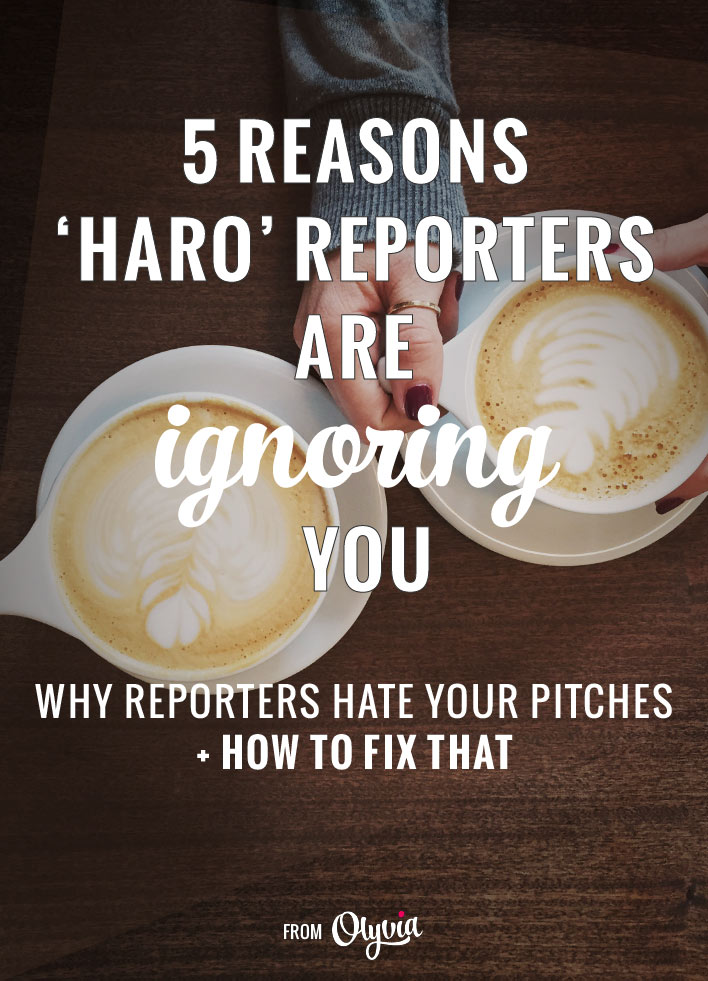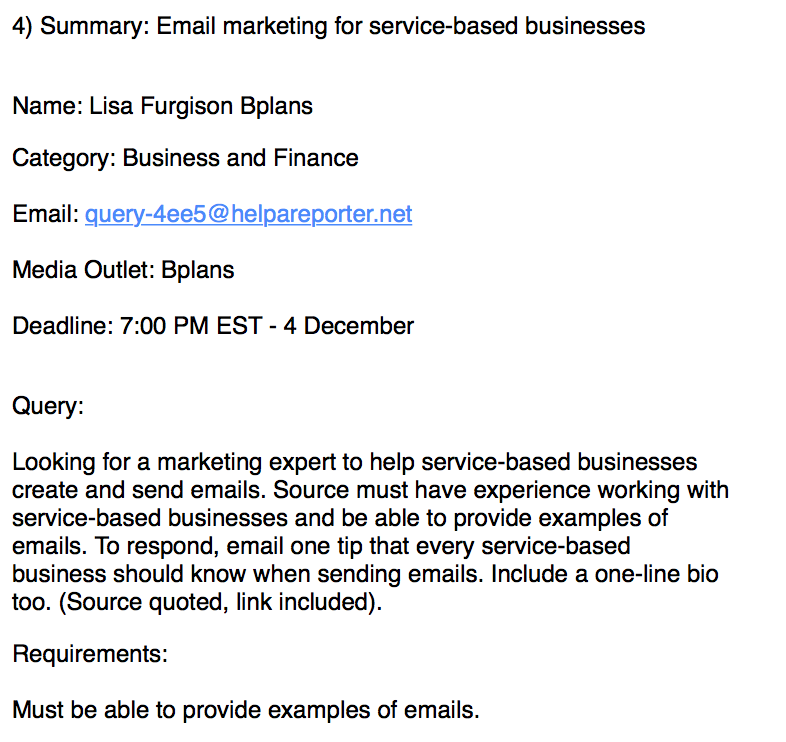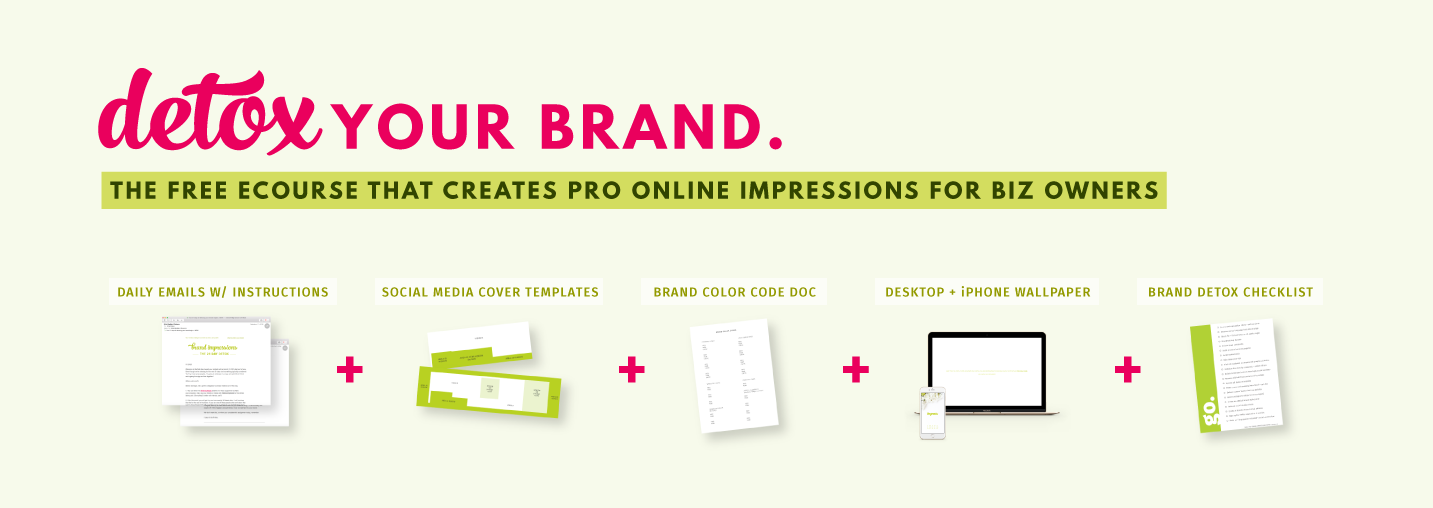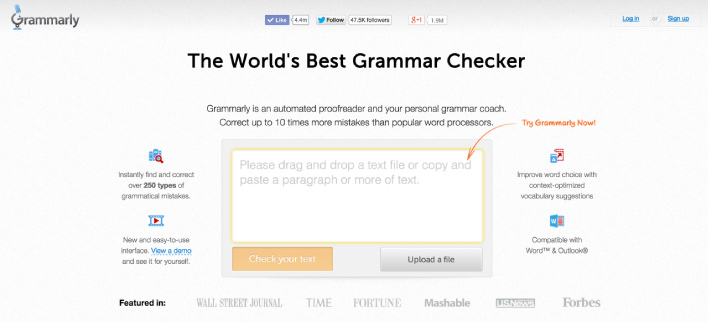The 5 Reasons You’re Being Ignored On HARO

When people first hear about Help A Reporter Out (HARO), they freak.
“You mean I can get quoted in The Huffington Post or CNN with no PR firm or marketing budget? Where has this BEEN all my life?!”
Shortly thereafter they usually embark on a binge emailing session, cranking out response after response to the dozens of journalists’ queries landing in their inbox (in full — yet deeply misguided — expectation that by the next day they’ll be #BreakingTheInternet along with Kim Kardashian).
But after about a month of this, a new reality sets in. And it sounds wayyy different than the first:
“Why are none of my responses being published? Why are reporters not contacting me?! Is this HARO thing a scam or what???”
The problem, of course, is not with Help A Reporter Out.
The problem is with the way people approach the reporters.
So with that, here are the top 5 reasons why people are not getting published on HARO.
Whip out your fanciest pen, my friends; it’s time to take some PR 101 notes!
1. NOT FOLLOWING DIRECTIONS
The typical reporter’s query through HARO looks like this:

The reporter, Lisa, has made it crystal clear what she’s looking for:
1. A marketing expert for service-based businesses (that has experience with email)
2. ONE tip about emailing
3. Access to email examples
4. A one-line bio
5. A response no later than 7:00 pm Eastern on December 4th
So all you need to do? Follow the directions!
(I can hear every teacher I ever had chanting in my ear right now, can’t you?)
Do not email two tips, five tips, or zero tips (as in, “contact me and let’s chat if you’re interested in hearing my tip”).
Do not copy and paste in your five-line bio.
And for goodness sakes, do not try to find her personal email and send in a response at 11:00 am on the 5th!
Journalists have a thankless, stressful job and most get paid little for their efforts; they don’t have the time OR desire to struggle with a pitch that doesn’t give them what they need.
(And with HARO, they won’t bother struggling with it. A reporter can have potentially thousands of high quality responses in their inbox by the end of the day. People who don’t play by the rules happily get deleted.)
If Lisa can’t take your response as-is and pop it into her article while she’s sitting bleary-eyed at her laptop trying to meet deadline, your chances of being published are…
Precisely zero.
2. FAILING TO WRITE A COMPELLING HEADLINE
Lisa titled her query above, “Email marketing for service-based businesses.”
So what do most people use as their subject line?
You guessed it:
Email Marketing For Service-Based Businesses
(Or, if they’re feeling wild: “Response to your query on email marketing for service-based businesses.“)
Now put yourself in Lisa’s shoes. What would it look like to see a hundred of those subject lines staring at you?
(“Dreadful” is one word that comes to my mind…)
But now imagine that if in the middle of all of them there was one that said:
Why Every Service Business Should Be Sending 3000+ Word Emails
Not only is that subject line likely to get clicked, it’s going to be the one Lisa remembers. Others may have an excellent tip (or even the same tip!), but if their subject line is indistinguishable from the others in Lisa’s inbox, she’s likely to pluck yours out of the mix first.
This post on Writtent has some excellent headline examples you can use for your next HARO pitch. Check them out.
3. USING POOR SPELLING OR GRAMMAR
While I almost left this point out, I (obviously) decided otherwise.
That’s because every now and then I meet a business owner or blogger who insists that they “don’t think people care” whether they make frequent spelling and grammatical mistakes.
(One entrepreneur I spoke with recently told me that she didn’t feel the need to double-check her writing because she felt that anyone she encountered in her business who cared that much about spelling or grammar was not “meant for her.”)
This may or may not be true, but let me just tell you this.
Journalists care.
They care a whole awful lot.
(Hey, I like to quote Dr. Seuss on my blog! You should, too. Just don’t do it when you’re angling for a feature in the U.S. News And World Report.)
Choosing not to edit your own blog posts is your prerogative, but I assure you: a reporter that receives a pitch that has blatant misspellings or awkward run-on sentences instantly thinks one of two things.
1. This person doesn’t care, and therefore should not be taken seriously.
2. This person is uneducated, and therefore not a reliable expert on this topic.
Both impressions mean you don’t get published.
If you’re serious about making a top-notch first impression with the media and building your publication portfolio, it pays off to edit each response with a generous helping of TLC.
Personally? I recommend using a comprehensive grammar checker, especially if you’re at all doubtful about your writing abilities.
Grammarly is one popular resource that will help you, and yes, I’m a proud affiliate. You can test-drive it for free:
Also, if you’re the type to supplement with guidebooks/desk references (and I recommend you do so because — surprise! — humans are still better than computers when it comes to catching every error), Ann Handley’s new book Everybody Writes: Your Go-To Guide to Creating Ridiculously Good Content![]() is excellent, too.
is excellent, too.
4. SUPPLYING LACKLUSTER QUOTES
I know it’s a tad ambiguous, imprecise, and horribly cliche (my apologies to my type A readers)…but boring quotes are buried quotes.
They won’t ever see the light of day.
Reporters want their articles to grab people’s attention and get read. What does this mean?
It means they’re looking for soundbites that are strong, bold, and have some swagger.
If a HARO query is asking career coaches to speak on whether it’s appropriate to wear red lipstick to a corporate job interview, the reporter is NOT looking for a response that goes like this:
“Red lipstick is really nice on some people. I’d say it’s great if you already have red lips. I think some women should if they are confident, but it’s okay if they don’t feel comfortable in it. Some employers will notice, but others won’t. It really depends on the individual business.”
Not only does that response fail to answer the question adequately, it is uninteresting and sounds scared.
Compare it to this:
“Shelve your inner temptress. Employers want to focus on your skills, not your sex appeal. (As a bonus, you’ll also save yourself the embarrassment of showing up with red lipstick all over your pearly whites.)”
See the difference?
5. BEING A DEMANDING PEST
We’re all itching to know if we’re going to see our name in the New York Times, but sending reporters follow-up emails like, “I’m surprised that I haven’t heard anything from you. Did you get my email? I need to know no later than Thursday if you’re going to publish it,” are not just a waste of everyone’s time, they’re downright obnoxious.
Remember: the reporter is not your employee, and beyond that, they’re doing YOU a huuuuuge service. (For free!)
They also have a job to do, and it doesn’t entail holding the hand of each and every person who sends them an email.
It’s fair to say that if you make yourself known as high-maintenance and overbearing, that journalist may very well decide to forego using your response entirely.
Both now and at every point going forward.
So please, leave them alone.
If your quote makes it into their article, 99% of the time the reporter WILL contact you with a “thank you” and a link to the live post.
(But don’t expect this to be the next day or even the next week. I’ve had people contact me up to 3 weeks later with news that the post was going live and I was included. This happens a lot, especially if it’s not a time-sensitive topic.)
And don’t sweat it: in the rare chance the person doesn’t notify you, you can still be alerted if you’ve set up search engine monitoring on Google Alerts for your name, business name, domain name, and key phrases that you use in your bio.
(You have done that, right? I thought so. 😉 )
Now it’s your turn.
Have you tried HARO? Do you have a tip to share? Have you ever pitched a reporter and had it go horribly wrong…or wonderfully right? Let’s talk about it!

(Chief Olyvia)





